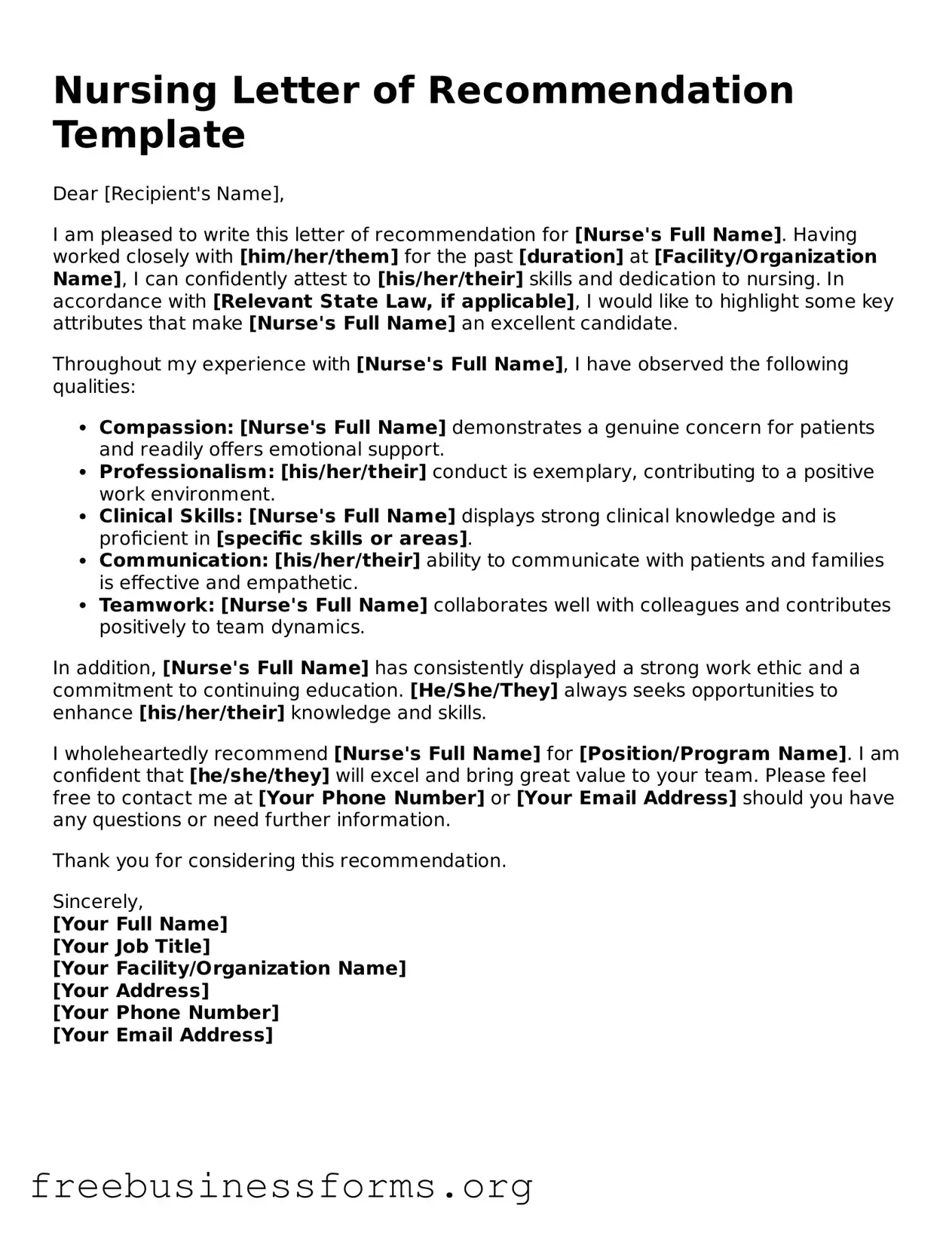Official Nursing Letter of Recommendation Form
The Nursing Letter of Recommendation form is a crucial document that provides insight into a nursing candidate's qualifications and character. This form typically includes evaluations from previous employers, educators, or supervisors who can attest to the applicant's skills and professionalism. A well-crafted letter can significantly enhance a candidate's chances of securing a position in a competitive healthcare environment.
Open Form Here

Official Nursing Letter of Recommendation Form
Open Form Here

Open Form Here
or
↓ PDF File
Quickly complete this form online
Complete your Nursing Letter of Recommendation online quickly — edit, save, download.